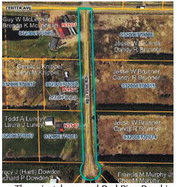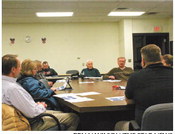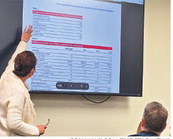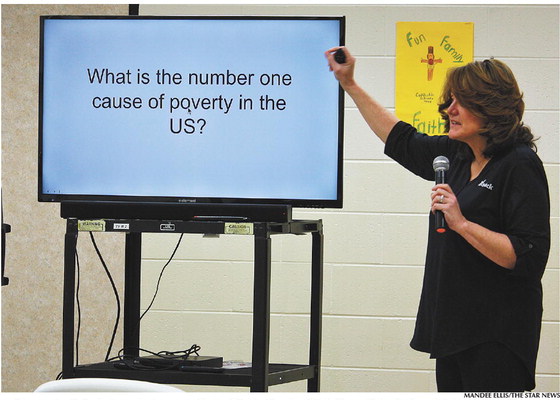Marathon supervisors agree to help departments with CART program
The Record Review The Marathon County Health and Human Services Committee last week Wednesday voted in favor of hiring additional staff at North Central Health Care (NCHC) to work with law enforcement who deal with mentally ill people.
The vote followed a presentation by a City of Wausau police task force, including Mayor Katie Rosenberg, who said that a current Crisis Assessment Response Team (CART) program was decreasing the number of mentally ill people caught in the “revolving door” between community and jail.
The committee passed two resolutions, one to better staff the CART program and a second one to have NCHC provide case management services for mentally ill people. These services would include drafting a release plan for mentally ill inmates at the county jail.
Wausau Police Department Deputy Chief Matthew Barnes said two CART workers help his deputies work with mentally ill community members in crisis situations and, just by visiting at-risk individuals during the week, they keep these individuals from descending into crisis. He asked for 1.5 CART positions to work a night shift and weekend hours.
“The goal of CART is to have a better outcome, save money and provide the best service we can,” Barnes said.
The official said too many mentally ill people, including many who suffer from alcohol and drug addiction, are ending up in jail.
“That number is unacceptable to us,” he said. Marathon County Sheriff’s Department Chief Deputy Chad Billeb said funding social services, including help for the mentally ill, had potential for dramatically reducing the county’s jail population.
He noted that La Crosse County, a county with a full social services department that is otherwise very comparable to Marathon County, recently had 110 inmates at their jail on the same day that Marathon County had 303 inmates.
“There are programs we need to look at,” said Billeb.”There is benefit there.”
Supervisors said they supported adding NCHC positions to assist law enforcement with the mentally ill.
Both supervisors Stacey Morache, Wausau, and Ron Covelli, town of Stettin, said the county needed to fund both CART workers and a Community Clubhouse, a NCHC mental health program that is slated to end on Oct. 17 as a way to address a NCHC budget deficit..
“We need both,” said Covelli.”We need funding for both.”
In related discussion, Mort McBain, interim director of NCHC, said that his executive board was now looking at a major restructuring in an attempt to provide more services to county government. He said the board questioned the current structure of NCHC when it proved unable to attract a new CEO.
McBain said progress to a new model of service will be painstaking. “It’s a slow path, but we are on a path,” he said.
In other business, the committee passed a motion endorsing a revised Family Keys program that will provide subsidized housing to parents who need housing to reunite with children who have been placed in foster case. The housing will be for single families, not for multiple families in a single dwelling.
Social Services director Vicki Tylka said the change made it possible to locate the Family Keys apartments in rural Marathon County. She said transportation for program users would be an issue with this option, however.
Supervisors Morache, Covelli and Kody Hart, Wausau, said they supported the Family Keys project with the changes.
The program will be funded with a $327,000 federal grant over two years.





